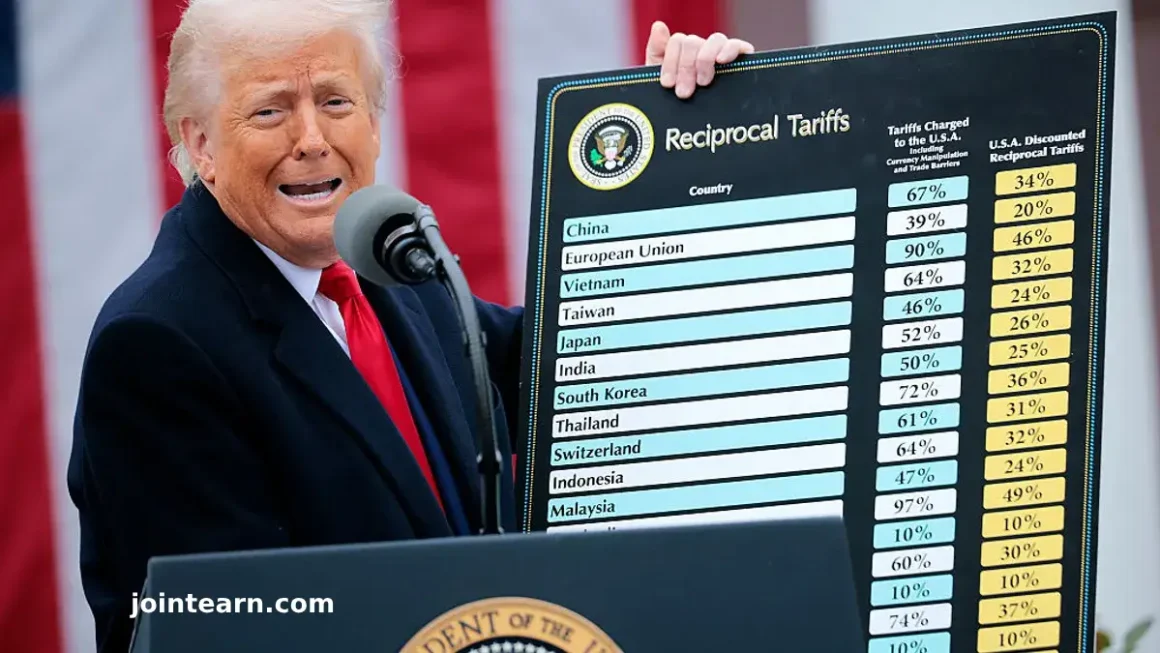Japan’s Finance Minister, Katsunobu Kato, suggested that the nation’s significant US Treasury holdings — the largest in the world — could potentially serve as a strategic asset in ongoing trade negotiations with the United States. This rare public acknowledgment of a possible financial leverage point signals rising geopolitical and economic tensions amid evolving trade dynamics.
💬 “It does exist as a card,” Kato said during a TV Tokyo interview when asked if Japan’s vast holdings of US government bonds could be used as a negotiation tool. “Whether or not we use that card is a different decision.”
While Japan’s finance ministry has traditionally exercised extreme caution in discussing its foreign debt portfolio, this statement introduces new speculation about the potential impact on US bond markets. With Japan holding approximately $1.13 trillion in US Treasury securities — more than any other country — the implications of even the suggestion of divestment could ripple across global financial markets.
💡 Strategic Use of Foreign Reserves
Japan’s US Treasury stockpile is managed under a special account for foreign exchange reserves, often used for currency market interventions. Kato emphasized that Japan doesn’t hold US Treasuries explicitly to support the US economy, a notable divergence from previously cautious rhetoric.
Experts view the remarks as a calculated signal rather than an actual policy shift. “Just the threat of it could have implications for the Treasury market,” said Kathy Jones, chief fixed-income strategist at Charles Schwab, “though following through could be damaging for Japan’s own economy.”
📉 Historical Precedents and Market Impact
This isn’t the first time Japan’s bond strategy has made headlines. In the late 1990s, Prime Minister Ryutaro Hashimoto hinted at selling US Treasuries in favor of gold amid yen volatility — a statement that triggered a market shock before being swiftly retracted.
The financial markets responded with measured calm on Friday, with little change in Treasuries during Asian trading hours. Japanese bonds and the yen remained stable, while Tokyo’s stock market rose in step with other major Asian indexes.
🛃 Trade Talks Continue Amid Tense Backdrop
Kato’s statement coincides with intensified bilateral trade discussions in Washington. Japan’s chief negotiator, Ryosei Akazawa, is engaging in a second round of talks aimed at securing a trade agreement by June. Observers see Japan’s Treasury holdings as an implicit bargaining chip in these high-stakes discussions.
Shoki Omori of Mizuho Securities cautioned, “Japan has definitely opened Pandora’s box by mentioning Treasuries and trade deals in the same breath,” adding that foreign selling pressure could drive US Treasury yields higher.
💼 Financial Diplomacy and Global Implications
The evolving stance from Tokyo — contrasted with earlier assurances from lawmakers like Itsunori Onodera, who opposed weaponizing bond holdings — underscores the complex role of sovereign debt in international diplomacy.
As Martin Whetton of Westpac put it: “Treasuries are a big stick. As Roosevelt said: ‘Speak softly and carry a big stick.’”












